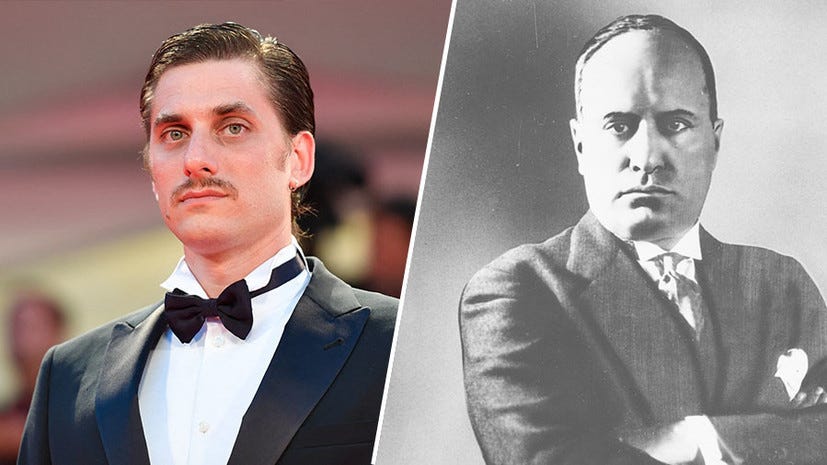Pivotal History is a History of Scenarios
Scenarios express energies. And all human History is first and foremost a history of energies.

There’s talk about a new television series in Italy. ‘M. Son of the Century’ is based on the international bestseller by Antonio Scurati, a massive volume.1
The book, which I’m reading, removes the figure of Mussolini from myth and puts it back where it should have always been—in historical trials. This is done in an accessible way in the television series, which is its brilliance.
This is the core value of this work of art. To tell a story grounded in history, where it should remain for us to remember and recall.
Yet, you wouldn’t know it from the comments in social media where people talk about ‘M’ only around lead actor Marinelli. To be sure, he does a spectacular job, but his performance serves the main value of this series—its historical grounding.2
The historical point no one wants to see. Both the book and the series highlight it in important ways.
Reminder: You can get extra insights—in-depth information, ideas, and interviews on the value of culture.
Join the premium list to access new series, topic break-downs, and The Vault.
Mussolini was not self-made. He was chosen by the liberal State. And he was chosen by the employers of the time. He was chosen because he’d betrayed socialism. No one better than a traitor could play their game.
Mussolini would have never been Mussolini if he’d not first of all made a career in the Socialist Party, where he wasn’t just any errand boy but a leader in an explosive career, to then betray the party and become a fervent instrument of anti-socialism.
Had there not been a ruling class that needed organized violence to quell the revolutionary impulses among the masses, Mussolini wouldn’t have gotten anywhere with the Fasci di Combattimento.
You can see the revolutionary impulses much better if you’re driven by hatred.
Mussolini was hated among the socialist masses because he’d betrayed them. He hated them, because for them there were other bald heads to follow at that time—reactionaries and European reformists were scared of a Russia closer than ever.
The historical function Mussolini played was that of an anti-Lenin. Someone like Mussolini helped a subsequent anti-Lenin traitor of another nature, like Joseph Stalin, to advance the cause of anti-socialism in his turn.
In an era in which the masses were in motion, the bourgeoisie that crowded Parliament feared them, and only through violence could they be forced to change direction.
“in the Fascist early days, the movement was not bankrolled by rich farmers nor by the barons of the growing Italian Industry… that will come later, for the time being, the business-owning-classes and families preferred to rely on Catholic and Conservative, Center-Right political formations to counter what was a hotbed of left-wing mobilization, of industrial strikes and struggles for social improvements.”
The son of the century was the son who put himself at the service of the counter-revolutionary needs of the ruling classes. Mussolini was the most skilled organizer of violence in the first half of the century in Italy.
Fascism didn’t gain consensus among the masses, fascism gained consensus among the ruling classes, and then it imposed (not proposed) itself on the masses. Here’s the parallel of radical relevance with the present.
The series aesthetics of the historical processes are interesting. Pivotal History with the capital ‘H’ is a History of scenarios. And in ‘M’ the scenarios, almost theatrical, are of primary importance (see note 1 here, too.)
Scenarios express energies—all human History is first of all a history of energies.
We should talk about the value of the series (and book) to the time we live.
The work demands something more than “witty and self-satisfied comments from positions much more similar to those of the cowards who obeyed M’s wishes in his time, rather than to Matteotti’s courageous battle.”
Lest we get distracted by the impressive visuals, let’s talk about the book that grounds the historical period.
A future that might not include him
Keep reading with a 7-day free trial
Subscribe to On Value in Culture with Valeria Maltoni to keep reading this post and get 7 days of free access to the full post archives.




